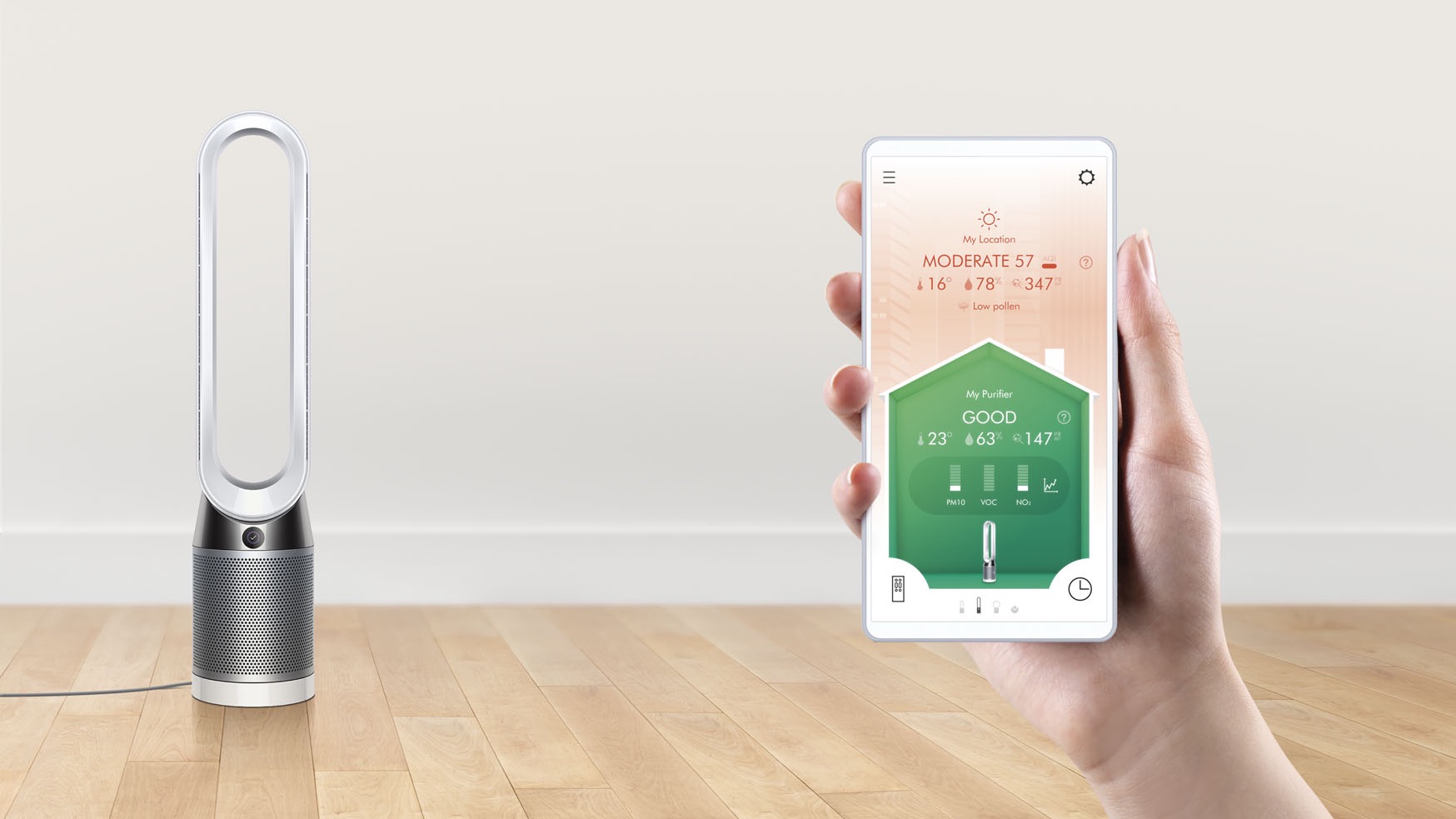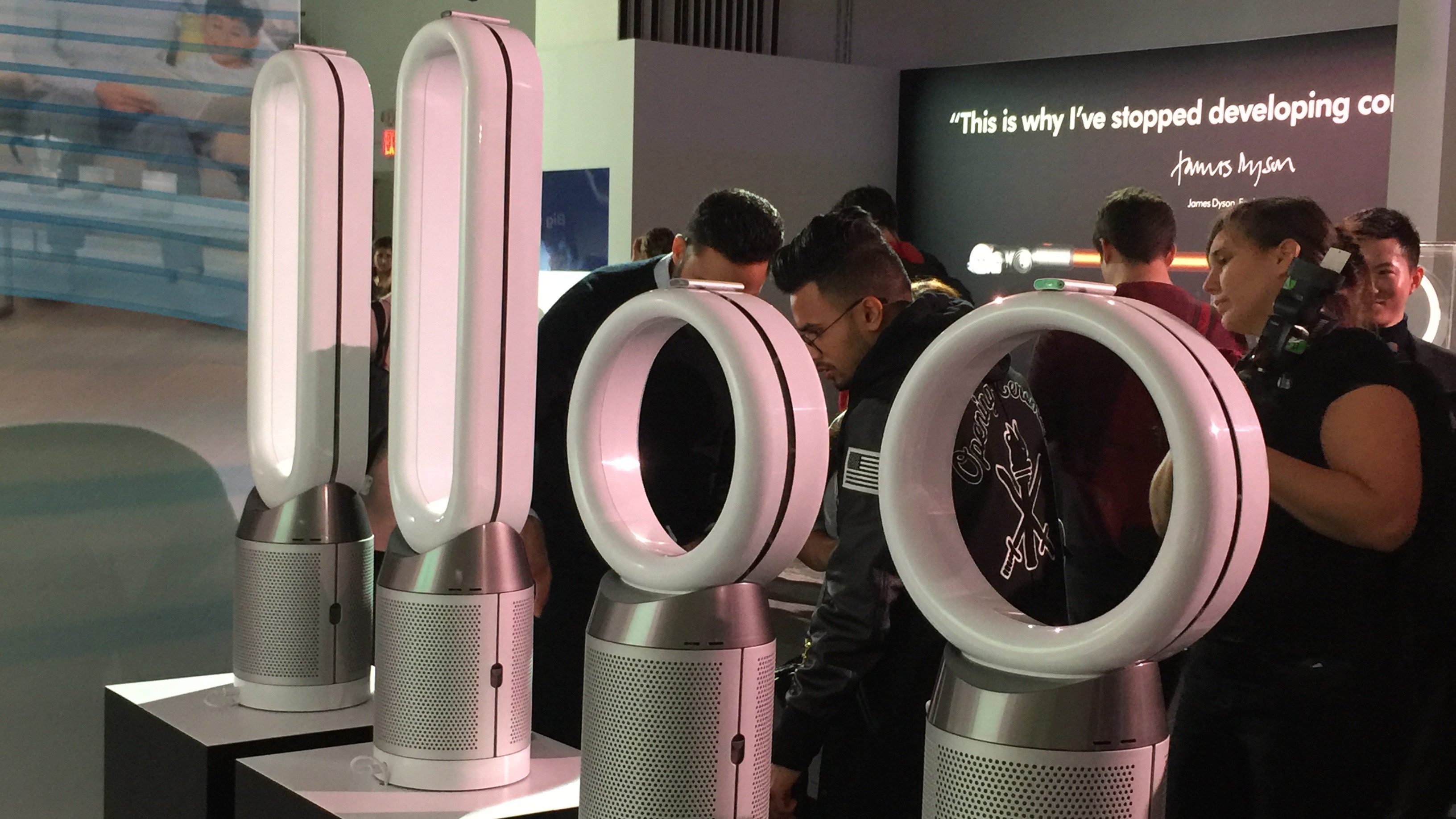New Pure Cool fan gathers more data than ever, but Dyson says your privacy is secure
How Dyson protects data collected in your home

As smart speakers and other connected appliances become more popular, one growing concern is how well these products actually protect your privacy.
It’s become increasingly common to fill your home with microphones and sensors that are always actively listening for the sake of convenience, and it’s opened us all up to some serious security risks.
So on Tuesday when Dyson unveiled the Pure Cool, a new connected air purifying fan with a built-in display and a mobile app, the first question to come to mind is how secure this product actually is. After all, even if it doesn’t have a camera or microphone, the Pure Cool is still taking in a ton of data about the activity in your home, and that data could be used against you if it fell into the wrong hands. Right?
We asked Paul Dawson, Dyson’s Vice President of Health and Beauty, what the company does to protect user data. His answer (along with a little digging into Dyson's privacy policy) points to your data being secure. However, it also revealed exactly how much information the Pure Cool has access to, and what the company (or a potential hacker) can do with that data.
Home habits
First, the good news. Dyson is doing everything possible to keep your data safe. That includes encryption, penetration testing, and help from security experts.
“It’s also stored in a way that’s quite difficult to find, and we don’t store those records next to the person’s name it’s associated with," Dawson said.
Dyson’s approach to data collection and analysis is more focused on the big picture. By combining information from its air purifiers all over the world, the company can gain insights into how pollutants enter people’s homes and the best ways to keep our air pure. It’s also revealed some interesting details about how people live more generally.
Sign up for breaking news, reviews, opinion, top tech deals, and more.
“One great trend I was spotting recently was that in Canada, the air quality in homes gets bad during the weekend, but then improves by the end of the week,” Dawson said.
He has an interesting theory as to why: people cook more at home over the weekend, releasing pollutants into the air. During the week, however, they don’t have time to cook and tend to dine out more often, so the air stays pure.

We asked if someone with access to Dyson’s data – like a potential burglar – could similarly figure out when we were least likely to be home before planning a heist. He said there was no way, reaffirming that this data is protected and dissociated with any one specific customer.
Dawson also explained that while the Pure Cool can identify general pollutant types, like smoke, it can’t “tell the chemical composition.” So, it won’t know if you’re smoking marijuana at home, and you don’t have to worry about that information being used against you in court if you live somewhere where that’s against the law.
If you’re still not convinced, Mozilla’s internet privacy website offers a checklist of potential security issues with Dyson’s air purifier based on another recent model. The page notes that these gadgets don’t include cameras or microphones, and the official app for your phone doesn’t ask for access to those, either. The app can track your location, but that’s common for smartphone software and it’s something you can revoke pretty easily on your own device by checking permissions.
Most important of all, Dyson promises not to share your private information. Any details it does gather won’t leave the company’s own digital vault.
“We don’t give this data to anyone,” Dawson said.
- We've spent weeks with the cordless Dyson Cyclone V10 vacuum cleaner

Jacob Kleinman is the senior entertainment editor at inverse.com